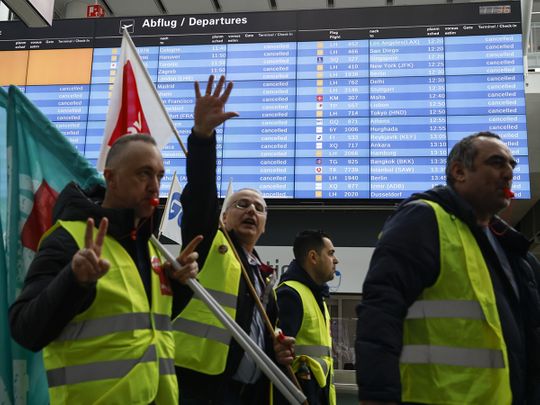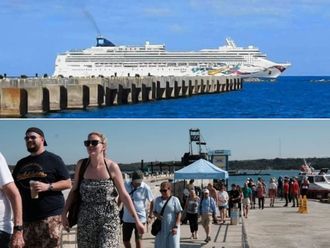
Dubai: Summer travel to Europe may not be such a smooth affair for UAE and Gulf travellers, with major airport hubs not expected to get their acts together in time for the peak season. In fact, fliers may have to wait until the Christmas and New Year period for some resolution to the issue.
European airports need more coordination and need to keep recruiting more to come close to meeting the demand that exists on routes into and out of the continent, according to Kamil Al Awadhi, IATA Regional Vice-President for Africa and the Middle East.
Getting new recruits up to speed is the difficult part. It takes three to nine months to qualify new ground staff and obtain necessary security clearances, the IATA official added. “The (European) airports’ complacency hampered the aviation industry.”
Read more
- Travelling to Qatar by road? How UAE visitors can pre-register vehicles for Abu Samra border crossing on the Hayya Portal
- ATM 2023: High inflation, rising oil prices will not deter tourists from visiting Dubai, says DET Chief Issam Kazim
- UAE-Germany travel: Emirates cancels flights from Dubai to Hamburg, Dusseldorf as airport staff strike
- Eid travel: UAE private jet operators go 'all-inclusive' with packages to Maldives, Seychelles
Staffing isn’t the only problem rife with these hubs. Airport staff have gone on strike in Germany, and France too has seen its share of disruptions. This meant airlines in the Gulf and elsewhere had to make last-minute cancellations of flights.
More walkouts are planned at airports in Italy, Germany, France, the UK, Scotland and Spain.

Al Awadhi warned that if hubs in Europe do not resolve their issues by this time, ‘airlines will suffer, but ultimately passengers trying to get in and out of that airport will also suffer’.
Geopolitics intrudes
Challenges, such as geopolitical issues and airspace restrictions – with Russia-Ukraine and now Sudan - will impact the global aviation industry. Despite this, the Gulf’s aviation industry has got the formula to keep succeeding.
“In the past, airlines always had enough cash to operate and pay bills,” said Al Awadhi. “Now, they have to rely on loans or government support, making it difficult to experiment with new routes and grow their business.
“However, some airlines (UAE carriers) have performed well, with CEOs taking calculated risks to optimise operating costs and expand routes.”
Fare stability
As long as demand and fuel prices remain stable, airfares (depending on the sector) will likely remain the same. However, the actual cost of aviation fuel can be higher than the price of crude, which impacts ticket prices and can discourage people from travelling.
Inflation, oil price fluctuations, and geopolitical turmoil can all have a say on travel demand. Despite this, the GCC carriers are expected to have a good summer. “Even with possible restrictions on visa issuances and airport destinations (as in Europe),” said Al Awadhi.
Gulf travellers planning those European holidays will still take their chances.












